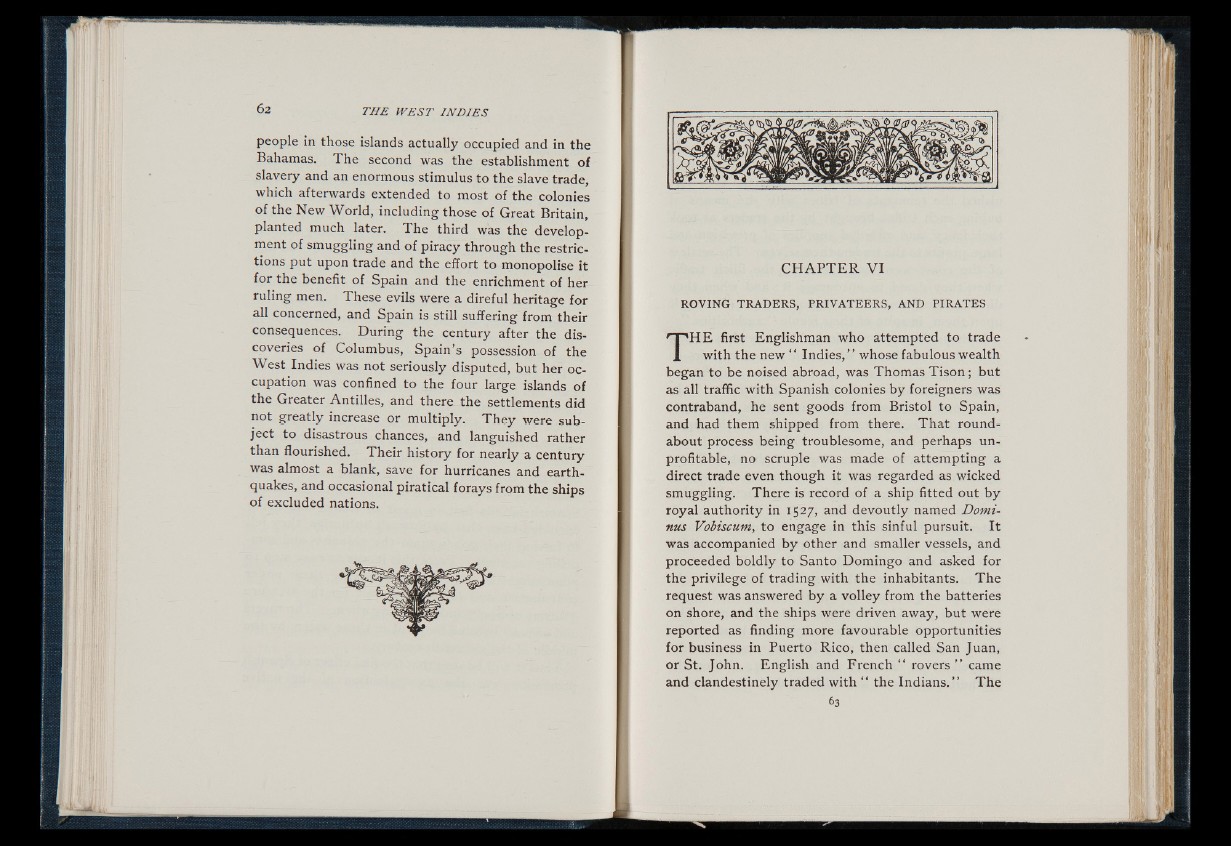
people in those islands actually occupied and in the
Bahamas. T he second was the establishment of
slavery and an enormous stimulus to the slave trade,
which afterwards extended to most of the colonies
of the New World, including those of Great Britain,
planted much later. T he third was the development
of smuggling and of piracy through the restrictions
put upon trade and the effort to monopolise it
for the benefit of Spain and the enrichment of her
ruling men. These evils were a direful heritage for
all concerned, and Spain is still suffering from their
consequences. During the century after the discoveries
of Columbus, Spain’s possession of the
West Indies was not seriously disputed, but her occupation
was confined to the four large islands of
the Greater Antilles, and there the settlements did
not greatly increase or multiply. T h e y were subje
c t to disastrous chances, and languished rather
than flourished. Their history for nearly a century
was almost a blank, save for hurricanes and earthquakes,
and occasional piratical forays from the ships
of excluded nations.
C H A P T E R V I
ROVING TRADERS, PRIVATEERS, AND PIRATES
TH E first Englishman who attempted to trade
with the new “ Indies,” whose fabulous wealth
began to be noised abroad, was Thomas T is o n ; but
as all traffic with Spanish colonies by foreigners was
contraband, he sent goods from Bristol to Spain,
and had them shipped from there. T h a t roundabout
process being troublesome, and perhaps unprofitable,
no scruple was made of attempting a
direct trade even though it was regarded as wicked
smuggling. There is record of a ship fitted out by
royal authority in 1527, and devoutly named Domi-
nus Vobiscum, to engage in this sinful pursuit. I t
was accompanied by other and smaller vessels, and
proceeded boldly to Santo Domingo and asked for
the privilege of trading with the inhabitants. T he
request was answered by a volley from the batteries
on shore, and the ships were driven away, but were
reported as finding more favourable opportunities
for business in Puerto Rico, then called San Juan,
or St. John. English and French “ rovers ” came
and clandestinely traded with “ the Indians.” T he
63